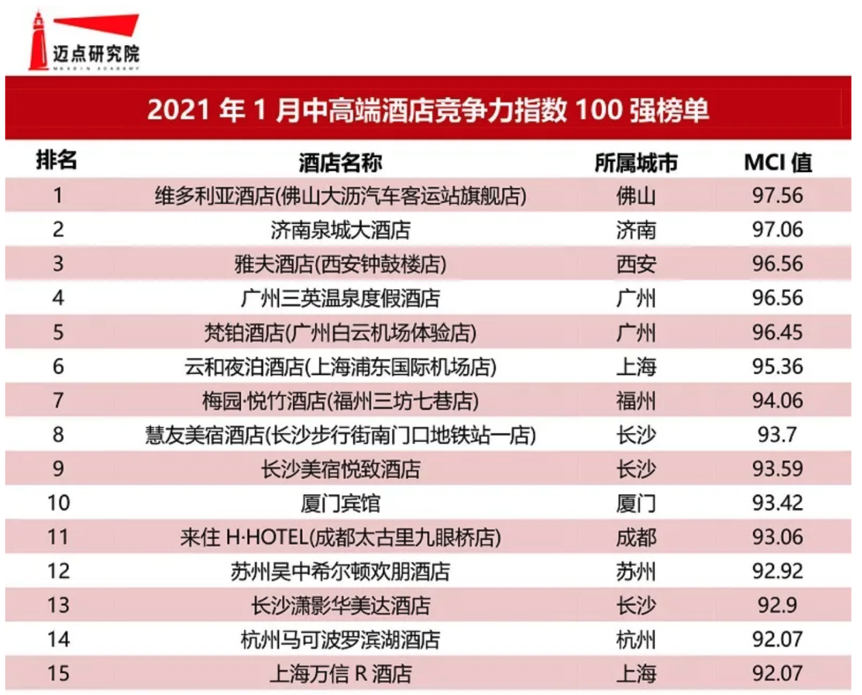谷歌借助AI和大数据迈进旅游业 航司酒店如何应对

据TheNextWeb报道,自从八年前收购ITA Matrix Software以来,谷歌(Google)不声不响地推出了许多供旅客使用的新型工具,过去几个月里的进展尤其明显:Google开始推出一系列工具,用于航班延误情况预测、出行计划制定及行程管理。
这就让人很疑惑:Google是否想要争夺在旅游领域的主导地位?如果是这样的话,参照亚马逊在零售和杂货业的表现,Google也极有可能会颠覆旅游和酒店行业。
平行路径
亚马逊是如何一步步发展成为零售巨头的?第一步,消除摩擦点,提供更好的服务。第二步,留住忠诚客户以实现增长。第三步,大量数据。第四步,利用数据。
凭借现有的忠诚客户及数据储备(可与亚马逊媲美),Google完全有能力在市场中占据主导地位。Google的平台有着无可比拟的优势:它充分了解消费者什么时候在搜索、什么时候不在家。
Google还通过Gmail投放航班和酒店预订信息。凭借其庞大的数据网络和应用程序集成,Google可以为旅客提供无缝的、定制化的出行体验。
想象一下——在一个寒冷的冬日,Julia正在工作,忽然看到一个关于巴厘岛海滩的广告,正是她一直想去的地方。点击进去,她看到有个优惠套餐,可享受折扣机票、酒店住宿,甚至潜水装备租赁(她去年刚拿到潜水证)。当然,她选择了预订。
出行前夕,她收到了许多关于各种便利设施及活动的定制化资讯,更为即将到来的旅行而兴奋。假期很美满,但也很短暂。在她回来几周后,Google知道她在为下一次旅行做计划,于是向她推荐了拜访亲友的行程安排。
Google之所以能做到这些,是因为它将数据变成了有用的情报。Google将会颠覆旅游业。而随着旅游业的标准不断上升,航司和酒店也需要应对这一挑战。
目的地:忠诚
颠覆即将到来,没有大规模的数据存储,航司和酒店要如何赶上他人的脚步?
这就回到了数据使用的问题:如何使用数据,通过各种渠道为顾客创造有意义有价值的体验。如果能得到充分实时的使用,即便是很少量的数据也能产生巨大的影响。旅游公司绝对不能错过顾客旅途中的任何一个关键决策点和互动机会。
这就包括实现销售升级(升级席位和房间)、改善服务质量(提供行李跟踪或礼宾服务)以及提供个性化服务(在前线安排服务代表,让消费者感觉到自己是特别的)。
航司和酒店已经开始借助人工智能(AI)来开发数据的作用,但还有很大发展空间。据SITA称,52%的航空公司计划在未来三年内启动AI项目,其中对使用AI开发预测和预警系统尤其感兴趣。
尽管如此,航司仍然有很多种办法来使用AI改善顾客体验,以从竞争对手中脱颖而出。酒店同样开始引入AI技术,借助聊天机器人、基于AI的客户服务以及对顾客行为的深入理解,实现顾客体验的改进。
不过,相对Google来说,旅游公司有一个优势:真实存在的接触点(值机柜台,POS系统,飞机和酒店等)。
面对面的互动为旅游公司提供了一个绝佳的、为顾客提供超凡体验的机会。
在Google开始收购实体航司和酒店之前(正如亚马逊收购Whole Foods一样),旅游公司和酒店仍有时间和空间优势,因而必须牢牢抓住“数据”这一机遇,以免错失良机。
英文原文:
Since its acquisition of ITA Matrix Software eight years ago, Google has been quietly rolling out new tools for travelers. Its progress has been even more notable over the past months and weeks as it began unveiling tools to help predict flight delays, plan trips, and manage itineraries—among other things.
These changes have some wondering: Is Google making a run at total domination in the travel space? If it is, there’s a strong case to be made for its potential to disrupt the travel and hospitality sector with a similar approach to Amazon’s run at retail, and more recently grocery.
Consider how Amazon grew to the retail gargantuan it is today. Step one, see an opportunity to provide a better service by removing friction points. Step two, incremental growth through adoption and retention of loyal customers. Step three, data, data, and more data. Step four, harness data into action – innovate, enhance, and repeat.
With an already loyal band of customers and data stores that rival those of Amazon, Google is perfectly positioned to take a dominant position in the marketplace as it dives into travel. Its platform has the largely unrivaled ability to see when consumers are searching, it knows when they’re away from home.
It even has flight and hotel reservations pouring in through Gmail. Leveraging its vast data network and app integrations, Google is uniquely poised to give consumers a seamless and tailored travel experience from the moment they decide to take a trip (and really, even before that), to the moment they return (and really, even after that).
Picture this – it’s a cold winter day, and Julia is going about her usual business. She sees an ad (or maybe an article, email, or push notification) displaying a beautiful beach in Bali that she’s always wanted to visit. Clicking through, she finds a unique package offer for discounted airfare, hotel stay, and even scuba equipment rentals (she got her certification last year). Of course, Julia books it.
As the trip approaches, she receives tailored communications highlighting amenities and experiences that get her even more excited. The vacation is everything she hopes it would be – except, as always, too short. A few weeks after she returns, however, Google knows she’ll be looking for her next destination and starts serving up trips to visit her friends and family members across the country.
Google is more than capable of delivering this experience today as it orchestrates its data into actionable intelligence. Google’s disruption to travel could be on the same magnitude as Amazon’s disruption of retail – which has played a major role in today’s so-called “retail apocalypse.” The bar for the travel industry is quietly rising, and airlines and hotels will need to rise to the challenge or risk suffering, just as big retailers have while trying to catch up to Amazon.
Destination: Loyalty
So, disruption is coming. How can airlines and hospitality companies stay relevant without the massive data stores of a tech giant?
It all comes back to mastering data orchestration to create meaningful experiences for consumers across all channels. Even smaller data sets can have an outsized impact if leveraged properly across the organization and in real time. Travel companies can’t afford to miss crucial decision points and interactions along the customer journey.
This includes instances where they may be able to upsell (offer upgraded seats and rooms), improve service (provide bag tracking or easy access to concierge services) and personalize (empower service representatives on the front line to go above and beyond to make the customer feel special).
Airlines and hotels have begun dabbling in their data and deploying AI to make it actionable, but there’s plenty of ground left to cover. According to SITA, 52 percent of airlines are planning major AI programs over the next three years, but are particularly interested in leveraging AI for prediction and warning systems.
Still, there are numerous other ways airlines can leverage AI to improve the customer experience and differentiate themselves from competitors. Hotels are similarly beginning to embrace AI, enhancing the customer experience with chatbots, AI-based customer service and better understanding of customer behaviors, but advancing along this path will be even more vital with Google in the mix.
But there is one advantage travel companies have over Google – their physical location touchpoints (check-in desks, POS systems, planes and hotels, etc.).
These face-to-face interactions give them a unique opportunity to make above-and-beyond experiences a reality for their customers. If you want an example of this done right, just look at what JetBlue has done.
Until Google starts buying up physical airlines and hotels, paralleling what Amazon started doing with its acquisition of Whole Foods, there is still time and room for travel and hospitality companies to get an edge and stay on top of the game. The important thing is to master turbulent data streams now to keep from missing the boat.
- 头条
- 乐享
- 度假
- 旅行
- 顶级
- 精品
- 奢华
- 亲子
快乐旅行
酒店欣赏
- 亲子酒店
- 特色酒店
- 2021《福布斯旅游指南》发布部分名单,提前公布只为旅行者提供后疫情时代行程参考 除夕三亚旅游酒店开房率57.2% 别墅10万/晚价格属实 新娘哭了!请帖都发出去了,贵阳华美达神奇大酒店竟然忘了有婚宴?! 上海瑰丽官宣新址,魔都数十家高奢酒店将至! 住酒店的人比去景区的人多 三亚窝酒店一族兴起
- 2020年第三季度7060家星级饭店营收368.62亿,平均出租率49% 对话“小镇之王”马英尧:聚焦下沉市场,到2030年开3万家酒店 | 旅见 万豪Q2收入翻倍扭亏为盈,客房数继续攀升,仍在观察德尔塔病毒影响 全球酒店225强最新榜单:锦江华住首旅如家格林东呈争霸,中国力量崛起 无接触服务盛行,酒店前台要消亡了吗?
- 疫情下出境游新动态?意大利旅游业疫情之下逐渐重启 巴厘岛怎么玩?巴厘岛交通指南 巴厘岛怎么玩?巴厘岛跳岛游交通攻略来教你 亚洲疫情防控趋势向好,多国拟开放国际旅游市场 西班牙旅游业新消息,西班牙政府对旅游业实施42.5亿欧元援助计划
- 酒店评析
- 网友热评
- 112-12入住香港美利酒店体验,完美邂逅,华丽永恒
- 212-10北京嘉里大酒店,如佳丽,似家里。
- 312-06上海外高桥喜来登酒店
- 411-08入住广州文华东方体验
- 511-03去港澳中心瑞士酒店 请守住你的肾
- 611-03北京好苑建国酒店测评报告
- 710-10海口香格里拉大酒店—在热带海滨闪耀的城市绿洲
- 810-08体验成都保利公园皇冠假日酒店
- 107-21想要体验椰风树影的游乐天堂?不要错过三亚海棠湾的这家神仙酒店
- 204-22新加坡香格里拉大酒店:静谧的奢华
- 304-22成都香格里拉大酒店体验记
- 404-22宁波香格里拉大酒店体验记
- 504-22沈阳香格里拉大酒店体验记
- 604-22长春香格里拉大酒店体验记
- 704-22桂林香格里拉大酒店体验记
- 804-08书香府邸酒店美食秘境——山塘庭院体验记









































































































